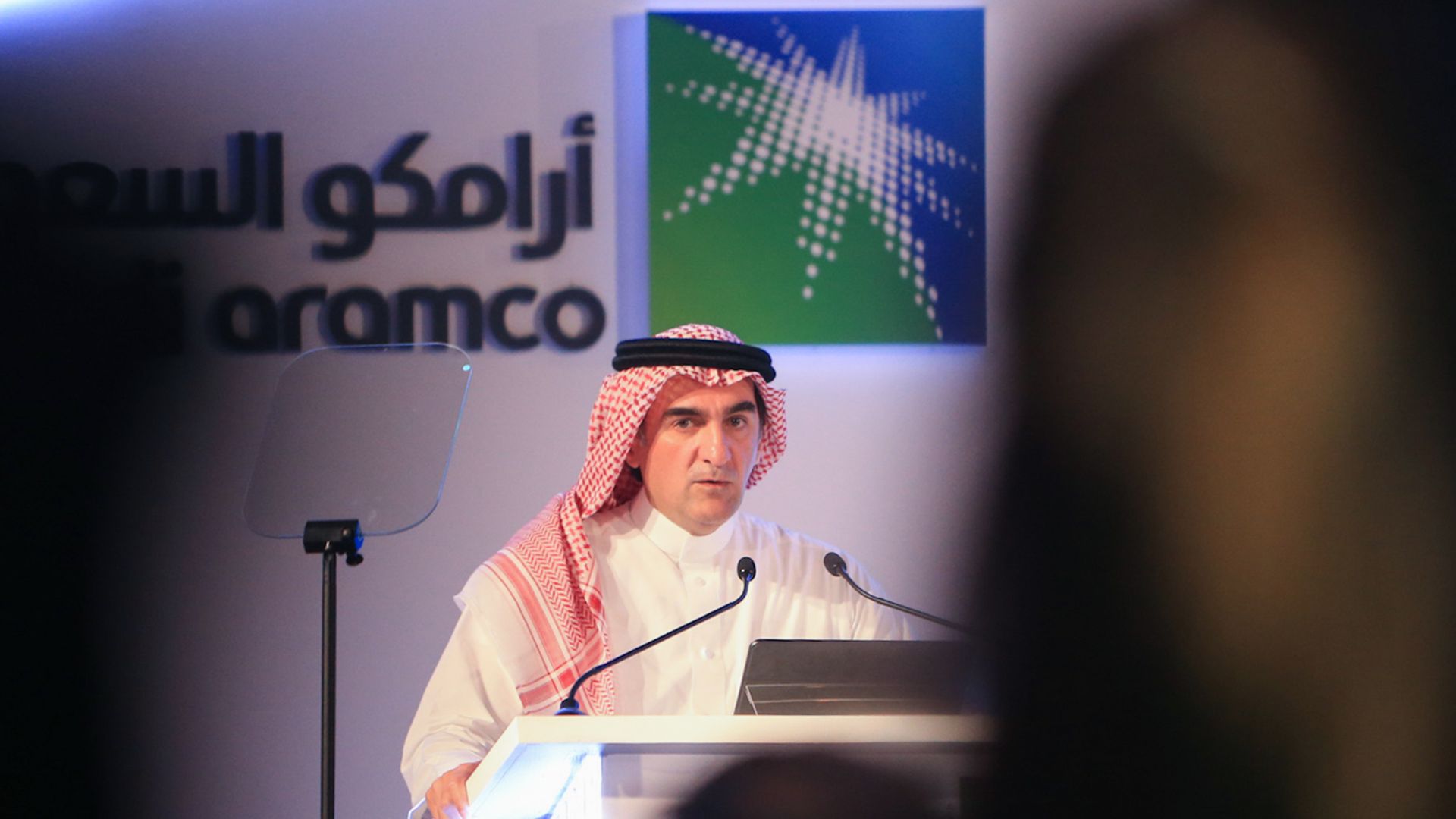How climate change concerns could affect Saudi Aramco's IPO
Add Axios as your preferred source to
see more of our stories on Google.

Yasir al-Rumayyan, chairman of Saudi Aramco. Photo: AFP via Getty Images
It's tough to think about long-term investments in Saudi Aramco, the world's biggest oil producer, without climate change entering the equation.
The state of play: A huge number of brain cells are devoted to gaming out when global oil demand may peak and what future climate policies mean for the sector. Some forecasters, like the International Energy Agency, don't see a peak before 2040 absent far stronger climate efforts. Others think it could be sooner.
But, but, but: It's not so clear that carbon constraints or peak demand would be Aramco's enemy, at least not for decades.
- Saudi oil, compared to other petro-states and companies, has a lower carbon intensity when produced, lessening emissions. It's something Aramco is keen to tout and did when announcing that the IPO is finally, actually, really, truly (theoretically) happening.
- So it's not impossible to imagine a scenario when Aramco has a comparative advantage if the world gets more serious about reining in what are still rising emissions.
What they're saying: Atlantic Council energy and climate expert David Livingston notes that once crude demand peaks and begins to decline, there will still be decades with lots of oil thirst, but perhaps at lower prices.
- He tells me that Saudi production costs are relatively low, "so in a world of lower average oil prices they would be able to sustain high levels of production even as other high-cost projects (including offshore and some shale) are forced to shut down."
- Livingston also argues that Saudi oil would be well positioned to compete in a world with carbon pricing and carbon border adjustments due to their per-barrel emissions and resources to invest in CO2 capture.
The bottom line: "Whether being king of a slowly atrophying industry is attractive enough to justify a premium from investors is another question, however, and one that we will all be watching closely in the months and years ahead," Livingston said.
